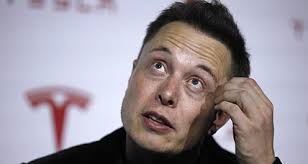
Breaking News
 $26M Frozen on Blockchain - With One Click
$26M Frozen on Blockchain - With One Click
 Italy are on national strike shutdown rejecting digital enslavement...
Italy are on national strike shutdown rejecting digital enslavement...
 The following U.S. states are currently using the rebranded "Reporty Homeland Security" so
The following U.S. states are currently using the rebranded "Reporty Homeland Security" so
 NATO Chief Urges Europe To Prepare For Long-Term World War With Russia, China, Iran & North Korea
NATO Chief Urges Europe To Prepare For Long-Term World War With Russia, China, Iran & North Korea
Top Tech News
 HUGE 32kWh LiFePO4 DIY Battery w/ 628Ah Cells! 90 Minute Build
HUGE 32kWh LiFePO4 DIY Battery w/ 628Ah Cells! 90 Minute Build
 What Has Bitcoin Become 17 Years After Satoshi Nakamoto Published The Whitepaper?
What Has Bitcoin Become 17 Years After Satoshi Nakamoto Published The Whitepaper?
 Japan just injected artificial blood into a human. No blood type needed. No refrigeration.
Japan just injected artificial blood into a human. No blood type needed. No refrigeration.
 The 6 Best LLM Tools To Run Models Locally
The 6 Best LLM Tools To Run Models Locally
 Testing My First Sodium-Ion Solar Battery
Testing My First Sodium-Ion Solar Battery
 A man once paralyzed from the waist down now stands on his own, not with machines or wires,...
A man once paralyzed from the waist down now stands on his own, not with machines or wires,...
 Review: Thumb-sized thermal camera turns your phone into a smart tool
Review: Thumb-sized thermal camera turns your phone into a smart tool
 Army To Bring Nuclear Microreactors To Its Bases By 2028
Army To Bring Nuclear Microreactors To Its Bases By 2028
 Nissan Says It's On Track For Solid-State Batteries That Double EV Range By 2028
Nissan Says It's On Track For Solid-State Batteries That Double EV Range By 2028
Spacex could relaunch a first stage booster in March and is working towards dozens ...

After a test-firing in late January, 2017 one the boosters that have been successfully landed by Spacex is now being transported to Cape Canaveral in preparation for the SES launch, tentatively scheduled for March. Other SpaceX rockets not slated for re-launch have undergone as many as seven test-firings.
Reuse is "just as fundamental in rocketry as it is in other forms of transport – such as cars or planes or bicycles," Mr. Musk said in a briefing after last year's April launch.
Imagine if you could only use an automobile once, driving to your destination, and then buying another to return home. Only the richest of the rich would be able to go on road trips in such a world. Now imagine that car costs from tens to hundreds of millions of dollars.
"There are ongoing challenges in translating a reused rocket to tangible capex savings – worries about it failing, insurance implications, retrofitting turnaround, building up a critical mass of reused first stages in the warehouse," Jefferies International LLC, an investment bank covering telecommunications satellites, wrote in a report studying SpaceX's costs.
In addition to the substantial added costs of insurance, testing, and refurbishing, landing a rocket takes more fuel too. As much as 30 percent more propellant, according to French space agency CNES. That's more weight the engines need to hoist into space, where kilograms don't come cheap.

 Carbon based computers that run on iron
Carbon based computers that run on iron

